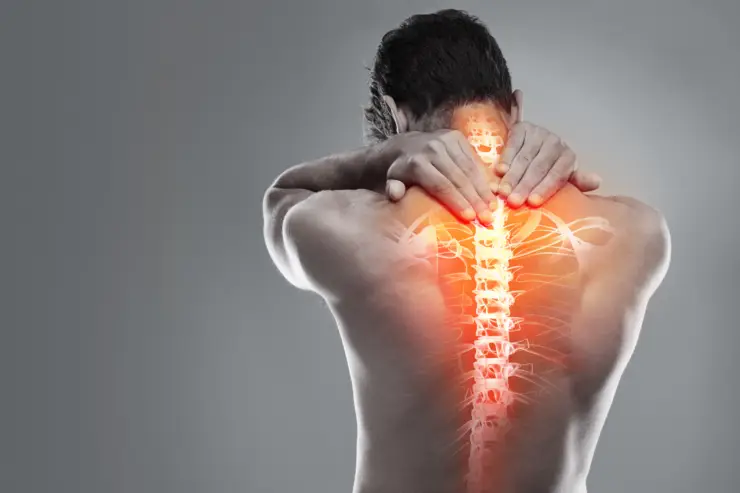Pain Management

Pain management is a multidisciplinary approach aimed at alleviating or reducing pain experienced by individuals, enhancing their quality of life, and promoting their overall well-being. Pain, whether acute or chronic, can significantly impact a person’s physical, emotional, and social functioning. As such, effective pain management is crucial for enabling individuals to lead productive and fulfilling lives despite their pain.
Types of Pain: Pain can be broadly categorized into two main types: acute and chronic.
- Acute Pain: Acute pain is usually sudden and results from a specific injury, illness, or medical procedure. It serves as a protective mechanism, signaling the body that something is wrong and needs attention. Acute pain typically subsides as the underlying cause heals.
- Chronic Pain: Chronic pain persists beyond the normal healing time and can last for weeks, months, or even years. It is often linked to conditions such as arthritis, fibromyalgia, neuropathy, or lower back pain. Chronic pain can be debilitating and significantly affect a person’s quality of life.
The Importance of Pain Management: Effective pain management goes beyond merely masking the sensation of pain. It aims to address the underlying causes of pain while also mitigating its impact on physical, emotional, and psychological well-being. Uncontrolled pain can lead to a cascade of negative effects, including sleep disturbances, depression, anxiety, reduced mobility, and a decreased ability to perform daily activities.
Multidisciplinary Approach: Pain management typically involves a multidisciplinary approach, drawing on the expertise of various healthcare professionals to provide comprehensive care. These professionals may include:
- Physicians: Medical doctors assess the cause of pain and may prescribe medication or recommend other interventions.
- Pain Specialists: Physicians with specialized training in pain management offer more in-depth assessments and develop tailored treatment plans.
- Physical Therapists: They focus on improving physical function, mobility, and strength through exercise and manual techniques.
- Occupational Therapists: They help individuals adapt to their pain while maintaining functionality in daily activities.
- Psychologists or Psychiatrists: Mental health professionals assist in managing the emotional and psychological aspects of pain, often using techniques like cognitive-behavioral therapy (CBT).
- Pharmacists: They provide information about medications, potential interactions, and side effects to ensure safe and effective pain relief.
- Nurses: Nurses play a crucial role in monitoring pain levels, administering medications, and providing emotional support.
- Complementary and Alternative Medicine Practitioners: These practitioners offer therapies like acupuncture, massage, chiropractic care, and mindfulness to supplement conventional treatments.
Treatment Approaches: Pain management strategies vary based on the type and severity of pain, as well as the individual’s preferences and medical history. Common approaches include:
- Medications: These range from over-the-counter pain relievers to opioids for severe pain. Non-opioid options, such as nonsteroidal anti-inflammatory drugs (NSAIDs), anticonvulsants, and antidepressants, are also used.
- Physical Therapy: Exercise, stretching, and other physical interventions help improve mobility and reduce pain.
- Interventional Procedures: Injections, nerve blocks, and implantable devices like spinal cord stimulators can target specific pain sources.
- Psychological Support: Cognitive-behavioral therapy, relaxation techniques, and mindfulness help manage the emotional toll of chronic pain.
- Surgery: In some cases, surgical procedures may be necessary to address the underlying cause of pain.
- Lifestyle Modifications: Weight management, a balanced diet, and proper sleep contribute to pain management.
- Alternative Therapies: Acupuncture, massage, yoga, and herbal supplements are sometimes used in combination with conventional treatments.
Challenges in Pain Management: Pain management is complex due to individual differences in pain perception and response to treatment. Additionally, concerns about opioid misuse and addiction have led to careful consideration of pain medication prescriptions.
Conclusion: Pain management is a holistic approach that recognizes the multifaceted nature of pain and its impact on various aspects of a person’s life. By combining medical interventions, physical therapies, psychological support, and lifestyle changes, healthcare professionals strive to empower individuals to regain control over their lives and minimize the disruption caused by pain. Effective pain management can restore functionality, improve emotional well-being, and foster a better quality of life for those living with acute or chronic pain.

